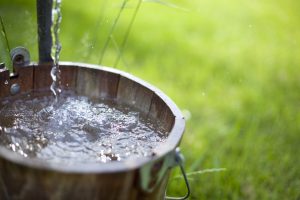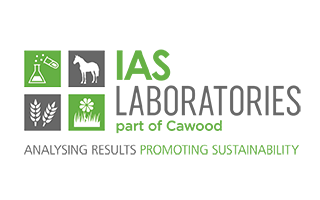Drinking water analysis to protect human health and maintain compliance
If you have a private water supply, it’s your responsibility to ensure that it is safe to drink. Well water and drinking water analysis is particularly important as we move into autumn and winter, as the risk of heavy rainfall puts wells under significant pressure. As water levels rise, so does the risk of contamination from nutrient run off.
Owners of private wells are also under increasing pressure to meet EU quality limits.
The best way to keep your family’s water supply safe and within EU quality guidelines is to routinely test it in an accredited laboratory. IAS offers INAB accredited water testing with quick and accurate results, as well as specialist advice from our water quality and filtration experts.
See our FAQs below for more information.
Please contact us on either [email protected] or 059 9721022 and we’ll be in touch.

FAQs
How often should I test my drinking water?
If you have a private water supply, it’s your responsibility to ensure that it is safe to drink. However, the World Health Organisation (WHO) and Environmental Protection Agency (EPA) recommend testing your well water at least once a year to ensure its safety and quality and to pick up any changes that may put your family’s health at risk.
What regulations do I need to comply with for drinking water?
In March 2023, the new EU Drinking Water Regulations were signed into Irish law. These regulations ensure that the state is meeting its EU obligations for the management of drinking water and are designed to protect human health.
For more information, read our blog on the regulations here.
Why should I test my drinking water?
Well water testing is particularly important as Ireland moves into autumn and winter, as the risk of heavy rainfall puts wells under significant pressure. As water levels rise, so does the risk of contamination from nutrient run off from farmland and other sources of contamination, which can affect the quality of domestic well water in rural areas. This can be more of a problem when coupled with manure and fertiliser spreading season. In worst cases of run-off contamination, your well water can also be soiled, discoloured, and develop a foul odour or taste.
Why should I use IAS for drinking water analysis?
We are an INAB accredited laboratory with over 35 years’ expertise in water quality testing. We are one of the only labs to give expert advice to help solve customer problems based on results, ensuring our customers’ supply meets the safety standards for human consumption and to help them comply with EU safety limits.
What water tests do IAS provide?
We offer a customer-focussed service for our:
- Drinking water analysis bacterial test (E. Coli, total coliforms and Enterococci)
- Lime drinking water test (Calcium and Magnesium hardness)
- Health check test in accordance with EU safety requirements to check contamination levels of private water sources
- Langeliers Index test to check how corrosive your well water is to plumbing and heating systems
- Council water grant scan (differs from county to county—contact us for specific area advice)
- Legionella analysis
- Ground and surface water analysis
- Livestock drinking water analysis
- Bord Bia water testing.
We offer a range of tests to suit your specific requirements. Contact us to find out more.
What do I get with IAS’ water analysis service?
IAS Laboratories provides a comprehensive water testing service, which includes supplying sampling kits, performing the analysis, and providing a full explanation of results with advice on how to rectify any issues. Please note that all samples for bacterial analysis MUST be submitted in sterile containers, which are provided upon request.
Can I use my drinking water analysis results for grants?
Following your water analysis test report from IAS, you may be eligible for a grant from your local authority rural water scheme. As an approved laboratory for all County Council grants in relation to well supply and drinking water quality problems, we can help interpret your results and advise on the grant schemes to help you obtain full entitlements from local authorities.
Grants are available for rehabilitation works on wells, new pumps, and water quality treatment systems if your results are outside the EU Drinking Water quality limits (S.I1 No. 122/2014-European Union Regulations 2014).
What should I look out for before testing my water?
There are 5 key ways to tell if your water is safe to drink, or whether you need to have it treated. For example:
- Metallic taste
- Brown/red stains
- Rotten egg smell
- Blue/green stains
- Analysis
Whilst unsafe drinking water can often be identified by a bad odour, taste, or discolouration, sometimes harmful bacteria or chemicals may be present without any discernible change. The only way to be certain that your water is safe is to have it tested.
For more information on the tell-tale signs of contamination, read our expert blog here.
What can poor quality water do to my plumbing?
Water quality can have a substantial influence on the lifetime of plumbing components. Issues such as low pH, high iron and hardness in water can result in costly repairs. High hardness can cause damage to household appliances, high manganese and iron levels change the colour of water, and low pH levels can cause pipes to corrode.
Why is high quality drinking water important?
Clean drinking water is a vital natural resource synonymous with a high quality of life. It:
- Facilitates metabolic processes
- Regulates body temperature
- Transports nutrients and waste products
- Aids digestion
- Prevents kidney damage
…and much more to support your well-being and sustain a healthy lifestyle.
Clean water also plays a crucial role in agriculture. It supports crop growth and ensures the health of livestock, enabling sustainable food production. On average, irrigated agriculture is twice as productive per unit of land as rainfed farming. With increasing population, urbanisation, and the challenges posed by climate change, efficient water use is more important than ever.
Essentially, access to clean water means access to food security, and sustainable production for a safer, healthier planet.
What health issues can arise from poor quality drinking water?
The presence of bacteria in a water supply can be very dangerous. Some studies suggest that long term exposure to high levels of bacteria or contaminants can result in adverse health effects, such as gastrointestinal illnesses, nervous system or reproductive issues, and chronic diseases.
Clean water is also important for public as well as individual health, whether it is used for drinking, food production, domestic use, or recreational purposes. Contaminated water can transmit diseases such as diarrhoea, dysentery, typhoid, and polio. In fact, 829,000 diarrhoeal deaths happen each year worldwide due to unsafe drinking water or poor sanitation.
